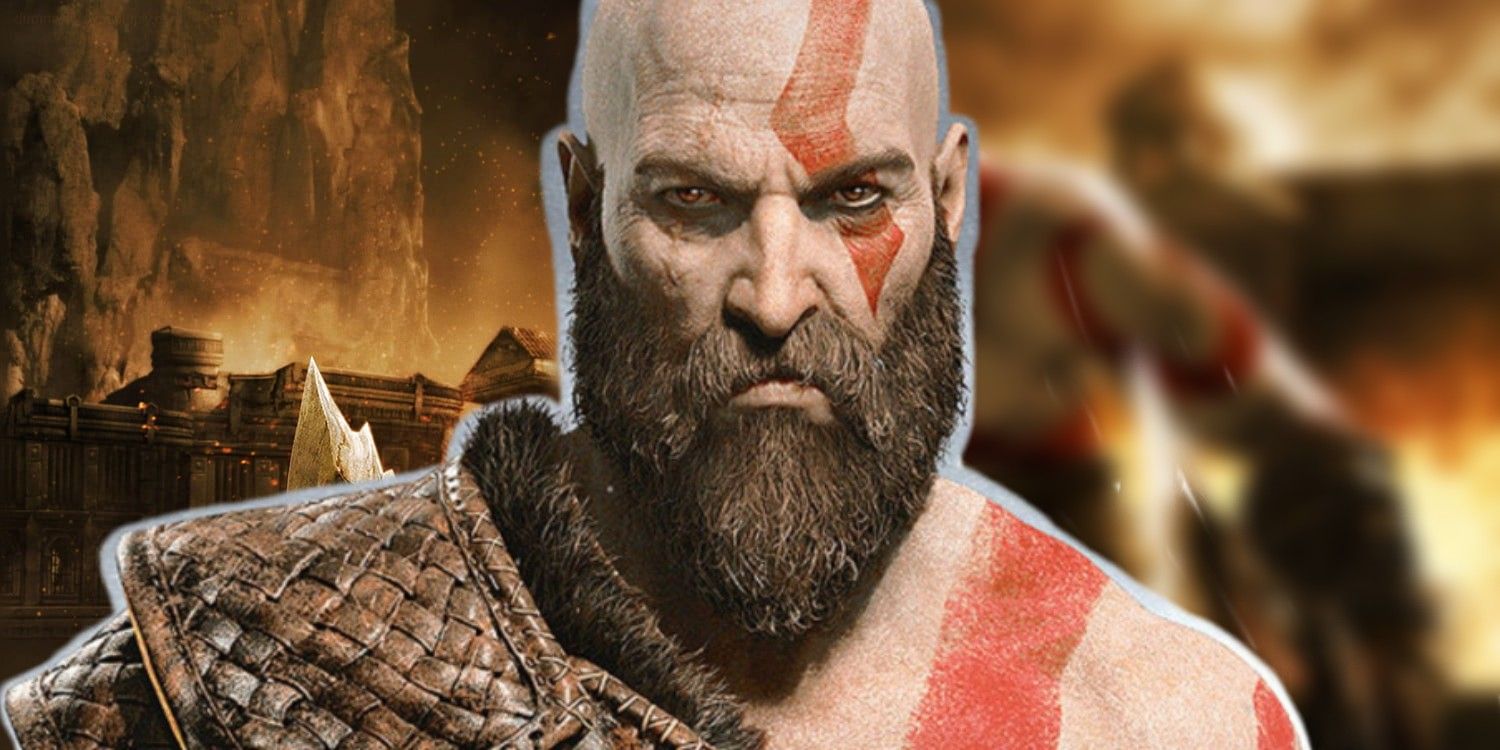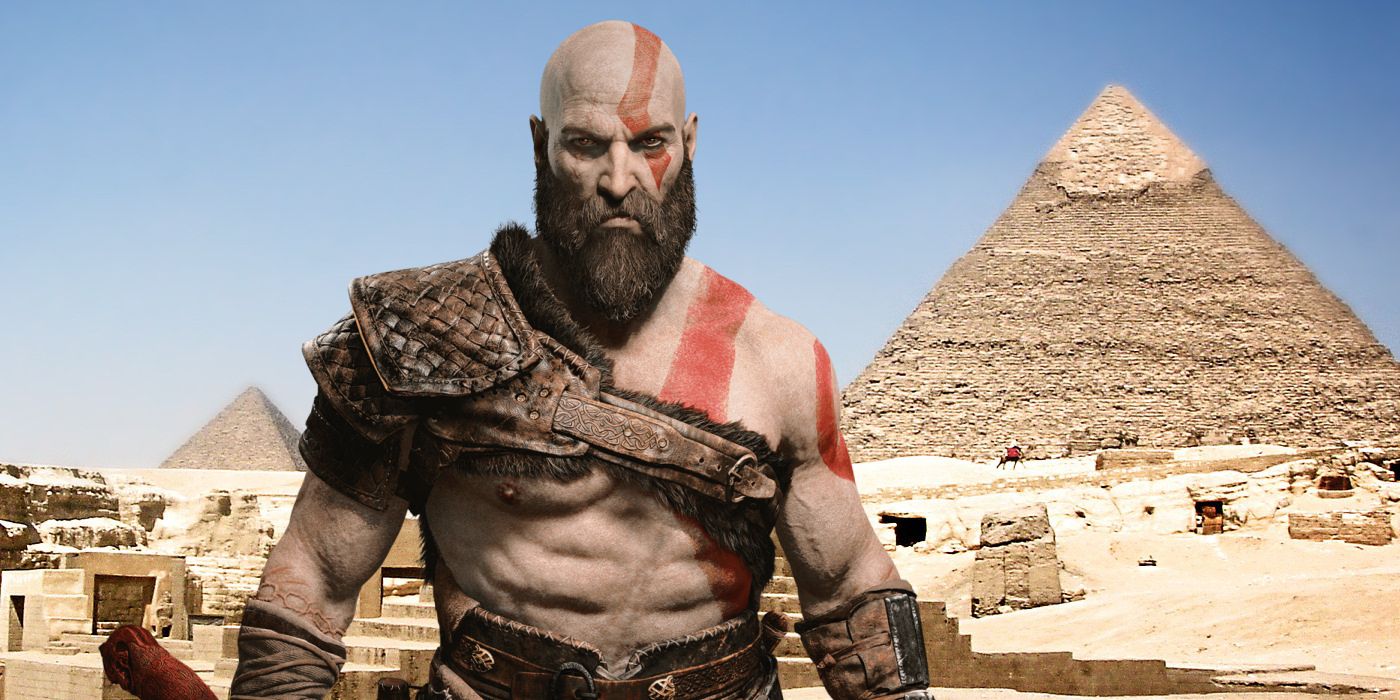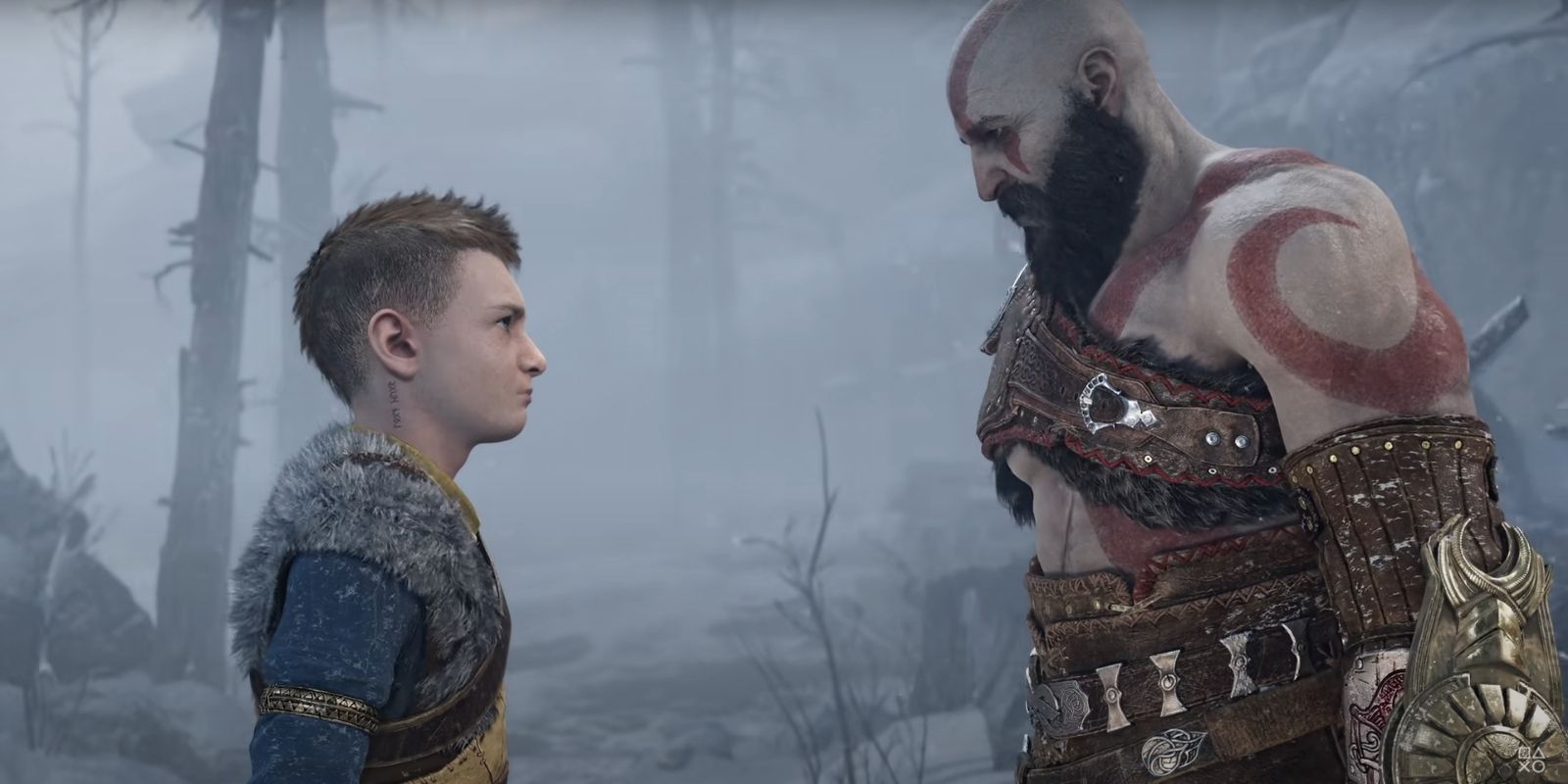The tale of Kratos in God of War is the epitome of a Greek tragedy, as one by one everyone that he has ever loved or become close with perishes. This is a recurring theme throughout God of War, and it slowly takes a toll on Kratos in his conquest to defeat the pantheon of gods that he feels have destroyed his life. Greek mythology plays a critical role in the development of Kratos's character leading up to 2018's God of War, but why did Kratos leave Greece?
Kratos attempts to take his own life at the end of God of War III to redeem himself for the atrocities he has committed and unleashed upon the world. However, as Kratos had experienced multiple times before, the attempt to take his own life was done in vain. After impaling himself with the Blade of Olympus in God of War 3, the final scene fades to black as Kratos presumably bleeds out, but a quick transition reveals only the Blade and a trail of blood left behind on the ruins of Mt Olympus. Upon realizing that he could not die, Kratos left Greece entirely.
It was only afterward that Athena told Kratos that, by him opening Pandora's Box, the evils trapped inside the box were not only released, but they consumed the will of the gods. The dialogue from Athena in the final scene of God of War 3 allows Kratos to comprehend that he was the cause for his own need for vengeance: "You used my power to kill Zeus. I saw you do it. Unless...of course. When you opened the box you released the evils to the gods. Infected them. Changed them...From [the box] you gained the strength that Zeus could never destroy, a strength great enough to overcome fear. Locked deep inside of you Kratos, is Hope."
God Of War: Why Kratos Leaves Greece, According To Canon
When Kratos impaled himself, he released Hope into the world just as he released evils every time he killed the other Greek gods. In long texts, it is directly stated that Kratos survived the end of God of War 3 in the novelization of 2018's God of War. Additionally, Cory Barlog, the Game Director and Story Writer for 2018's God of War, said in an interview with VentureBeat, "At the end of God of War III, after laying waste to Olympus, Kratos leaves and, for me, goes on this really long wandering pilgrimage...He realizes he’s cursed. He’s going to live forever." The same treatment is shown for his Blades of Chaos, which Kratos attempts to cast aside in the novelization of 2018's God of War, but they are bound to him and returned by a curse placed on Kratos by the gods of Olympus.
In God of War: Fallen God #1, published by Dark Horse Comics, the comic states that the reason Kratos left Greece in God of War was to leave his past of self-righteous vengeance behind. After years of seeking vengeance against those whom he felt betrayed him, Kratos' remorse has finally gotten the better of him. This is also indicated at the of God of War 3, as Kratos says to Athena, "Look around you, Athena. The world stands in ruin. What good is your message?" Kratos says this to Athena after she congratulates him on plunging the world into chaos from defeating the Olympians.
In canon, Barlog, God of War: Fallen God, and the novelization of 2018's God of War confirm piece by piece that Kratos left Greek mythology to seek atonement for his past actions. Kratos traveled for a long time, far away from Greece making it to Egypt, only to be dragged away by an unknown woman with wolves. The novel recalls a dream Kratos has where he's taken to Scandinavia by wolves, sometime after he made it to Egypt in God of War: Fallen God.
The woman commanded the wolves to drag Kratos to the land of the Norse gods, and while it isn't stated in 2018's God of War as Kratos and Atreus review a mural with the wolves, the novel reads, "Kratos stared at the beasts with a shiver of recognition. The image of him dressed in his Greek attire, being dragged by a verdant-eyed black wolf while the other flanked either side, flashed like lightning across his mind. Were those the creatures that had brought him to this land?" While not confirmed, it is highly inferred that Kratos awoke from being unconsciously dragged, and sailed the rest of the way to Scandinavia where he met Faye, his wife, and mother of Atreus. Additionally, the murals in Jötunheimr depicted the travels of Atreus and Kratos throughout the game, suggesting that Kratos was bound by fate to arrive in Scandinavia.
God Of War: Why Kratos Leaves Greece, According To Developers
Kratos, from the development team's reasoning, did not end up in Scandinavia by accident either. In another interview via Destructoid about the details of 2018's God of War, Barlog discusses his deep dive into Norse mythology, and how the development team could possibly implement their own take:
"A lot of people think Norse, they think Viking, but there's really this amazing prehistory [called] the migration, and then prior to that, the pre-migration era," said Barlog. "In the Viking era, they always talked about, "The gods have abandoned us." Thor and Loki and Odin all walked the Earth at one point, but they're not around anymore...We're at a prehistory point, where gods did walk the Earth, when monsters were real before they became extinct...It's a fun space to be in because it allows us to paint our own image of Norse mythology as opposed to anyone else's."
Unlike Greek mythology, Norse mythology is not as well documented, and this gave the development team the perfect sandbox to reinvent God of War and Kratos into something new without having to restart the franchise. Greek mythology created Kratos, but the characters and creatures in Norse mythology give Kratos the opportunity to develop as a character.
The Norse mythology allowed the God of War development team to implement, and continue, a new story for Kratos where he's attempting to grow from a god who made mistakes and committed atrocities, to a person that he would respect. Thanks to his son, Atreus, Kratos is able to slowly implement change in his own life as he nurtures the development of his son's ability to use restraint as a god - something that Atreus (Loki) struggles to do in real Norse mythology.
Sources: VentureBeat, Destructoid



